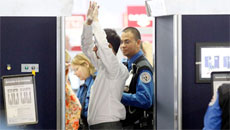LAC-MEGANTIC,, - Many factors contributed to the Lac-Megantic train derailment in 2013, including lax safety measures at the company that owned the runaway train, the Transportation Safety Board of Canada said Tuesday.
The agency targeted Montreal, Maine and Atlantic Railway and Transport Canada in its final report.
"We now know why the situation developed over time," TSB chair Wendy Tadros told a news conference in Lac-Megantic. "A weak safety culture at MMA, poor training of employees, tanker cars that didn't offer enough protection.
"And then Transport Canada didn't audit railways often enough and thoroughly enough to know how those companies were really managing, or not managing, risk."
Tadros acknowledged the report will do nothing to bring back loved ones or to rebuild the devastated town.
"We know that, we do. But we can point the way to a better future, a safer future."
Tadros said a multitude of factors played a role in the tragedy, which killed 47 people.
"Accidents never come down to a single individual, a single action or a single factor," she said. "You have to look at the whole context. In our investigation, we found 18 factors played a role in this accident."
One of them was that about one-third of the derailed tanker cars had large breaches which rapidly released vast quantities of highly volatile petroleum crude oil.
Brake issues also played a role in the accident.
"The seven hand brakes that were applied to secure the train were insufficient to hold the train without the additional braking force provided by the locomotive's independent brakes," the TSB said.
The federal agency is making two additional recommendations: that additional "physical defences" be set up to prevent runaway trains, and that there be more thorough audits to ensure railways are effectively managing safety.
Last January, the TSB called on Ottawa to take urgent action to pull outdated and unsafe rail cars from Canada's tracks, as well as reassess the safety of all potential routes used to transport dangerous goods.
In Ottawa, federal Transport Minister Lisa Raitt reacted to the report and said her department will review it thoroughly.
"I have directed the department to quickly develop concrete actions to address the TSB's recommendations," she told a news conference.
"Today's report indeed does talk about higher expectations for Transport Canada. I share those expectations and I know the public shares those expectations too."
Raitt said the department has acted decisively in moving to implement the TSB's previous recommendations and will do the same with Tuesday's suggestions.
Edward Burkhardt, the MMA chairman who became a lightning rod for the community's anger when he visited Lac-Megantic shortly after the tragedy, said from his office in Rosemont, Ill., that he could not comment on the report because of pending legal cases.
"I'm studying it," he told The Canadian Press when asked for his reaction. "It's a lot of material. It's a big report.
"I don't have anything to say at the moment anyway because I haven't got through most of the report."
Burkhardt said he would likely not comment when he was finished.
"My lawyers will be very unhappy with me if I do."
When Burkhardt visited Lac-Megantic four days after the July 6, 2013 disaster, he was greeted by angry hecklers blaming him and his company for the tragedy.
He was also criticized for not coming to the town sooner but he replied he was dealing with the crisis from his Illinois office.
The Lac-Megantic disaster destroyed a swath of the community's downtown and spewed millions of litres of crude oil into the environment.
The train careened into the town shortly after 1 a.m. and jumped the tracks, exploding into fireballs that were spotted by satellites in space.
People are still being treated for post-traumatic stress, while efforts to rebuild are still underway in the aftermath of what the safety board described as potentially the worst disaster of its type in Canadian history.
In May, the Montreal, Maine and Atlantic Canada Co. and three of its employees were charged by Quebec prosecutors with 47 counts of criminal negligence causing death.
The accused are train engineer Thomas Harding, railway traffic controller Richard Labrie and Jean Demaitre, manager of train operations.
Tom Walsh, the lawyer representing Harding, praised the report, saying the board has done "a very good job."
"They have isolated the 18 factors that contributed to this tragedy," he said in a telephone interview. "They made it very clear that this is not a hand brake problem and it's not a problem with just one person. It's a systemic problem that's been going on for years and years and years."
Walsh also hopes prosecutors will consider the report.
"I'd like the Crown to take a look at that report and wonder if it did the right thing by accusing these three people. I think there should be a little bit of soul-searching at that end because we don't even know the names of the people at Transport Canada or the people behind the corporate veil of MMA who were responsible for creating the conditions which allowed this tragedy to occur."
He said Harding suffered a heart attack at the beginning of July because of the stress of the last year but is recovering well.
Walsh plans to talk to his client about the TSB document but that he already knows much of what's in it because he had seen the provisional report.
"He's basically in agreement with what's in the report," Walsh said.
Class-action lawsuits are pending after the tragedy and there are also demands for an independent inquiry.
The TSB said at the time of the derailment it would take months to investigate but took the unusual step about two weeks later of recommending immediate changes to rail safety.
It urged that dangerous goods not be left unattended on a main track and that rail equipment be properly secured.
Transport Canada issued directives on July 23, 2013, that at least two crew members must work on trains that carry dangerous goods and that no locomotive attached to one or more tank cars carrying dangerous goods can be left unattended on a main track.
The Lac-Megantic train had been left unattended by Harding as he rested for the night at a nearby hotel. Early reports said the train's brakes became disabled, allowing it to roll into the town.
The TSB said last year as its investigation progressed that the crude oil carried by the train was as volatile as gasoline but had been labelled as a less-dangerous product similar to diesel or bunker crude.
Montreal, Maine and Atlantic Railway, which had filed for bankruptcy protection, was sold in January in a closed-door auction for $15.85 million. The buyer was later revealed to be Railroad Acquisition Holdings, an affiliate of New York-based Fortress Investment Group.
Government and industry have continued to tighten rail regulations since the tragedy.
The federal government pledged in April to pull all old, rupture-prone tank cars, known as DOT-111s, off Canada's rails in the next few years.
Millions of dollars have been pledged to rebuild Lac-Megantic. The federal and Quebec governments have said they will split the cost.





